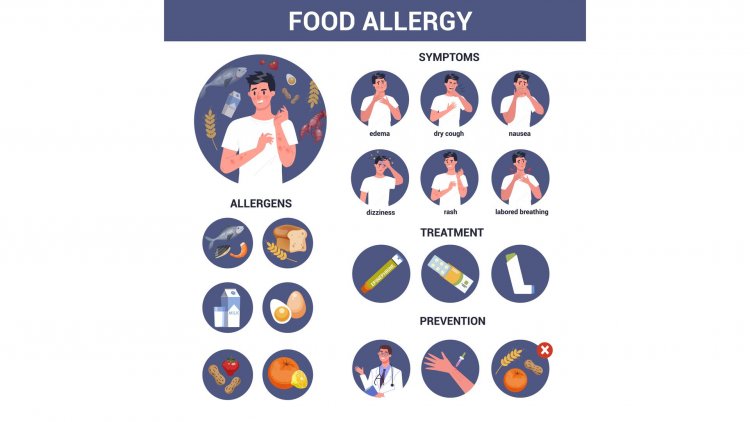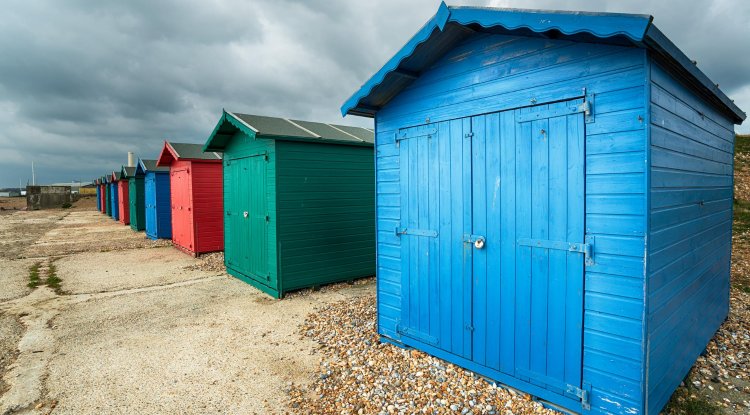Navigating the World with Allergies: 5 Essential Tips for Stress-Free Travel
Traveling is a thrilling experience, offering the chance to explore new cultures, savor unique cuisines, and make lifelong memories. However, if you have food allergies, the excitement of travel can quickly turn into a stressful ordeal. The thought of inadvertently consuming something that could trigger an allergic reaction can overshadow your anticipation. But fear not—by planning ahead and following some key strategies, you can manage your allergies effectively and enjoy a worry-free adventure.

1. Research Your Destination Thoroughly
Before you pack your bags, it's crucial to research your destination with your food allergies in mind. Each country, and often each region within a country, can have vastly different food cultures and practices, which might affect how your allergies are managed.
Understand Local Cuisine and Ingredients
Start by understanding the local cuisine and common ingredients used in the region you plan to visit. For example, if you have a gluten intolerance, you'll want to be aware of staple foods like bread and pasta that might contain gluten. In some cultures, fish sauce or soy sauce might be a staple ingredient, which could be problematic if you have a seafood or soy allergy.
Learn the Language or Have Key Phrases Ready
If you're traveling to a country where you don't speak the language, learn some key phrases related to your allergies. For instance, knowing how to say "I am allergic to peanuts" in the local language can be invaluable. If learning the language isn't feasible, consider using translation apps that can help communicate your needs.
Consult Online Forums and Travel Blogs
Online forums and travel blogs can be great resources for understanding how other travelers with food allergies have navigated similar situations. Look for advice from those who have visited your destination and shared their experiences regarding allergy-friendly restaurants or potential pitfalls.
2. Pack Smart and Safe
Packing smart is more than just fitting everything into your suitcase; it's about ensuring you have everything you need to manage your allergies effectively while traveling.
Bring a Comprehensive Allergy Kit
Create an allergy kit that includes all the essentials you might need. This should consist of:
- Medications: Bring enough of your prescribed medication, including epinephrine auto-injectors, antihistamines, and any other emergency medications. It's wise to carry them in their original packaging, as this can help avoid issues with airport security and clarify your needs in emergencies.
- Medical Documentation: Have a note from your doctor detailing your allergies and treatment plan. This can be helpful in medical emergencies and when communicating with medical professionals abroad.
- Snacks and Substitutes: Pack safe snacks that you can rely on when options are limited. Also, consider packing some meal substitutes or bars that are suitable for your dietary restrictions.
Prepare for Different Types of Accommodations
Whether you're staying in a hotel, hostel, or vacation rental, different accommodations can present different challenges. If you’re staying in a rental property with a kitchen, you might want to bring your own utensils or cookware if you’re concerned about cross-contamination. For hotel stays, contact the hotel in advance to discuss your dietary needs and see what accommodations they can offer.
Ensure Proper Storage and Handling
Traveling with perishable items? Ensure they are stored properly to avoid spoilage. Insulated bags and portable coolers can help keep your items fresh. For medications that require refrigeration, check if your accommodation can provide a fridge or consider packing a portable cooler with ice packs.
3. Communicate Clearly and Confidently
Effective communication is crucial when managing food allergies while traveling. Being clear and confident about your needs can help prevent misunderstandings and ensure your safety.
Alert Restaurant Staff
When dining out, always inform the restaurant staff about your allergies. Make sure to explain the severity of your condition and ask detailed questions about how the food is prepared. Be specific about cross-contact, and ensure that the kitchen staff understands the seriousness of your allergies.
Use Allergy Cards
Allergy cards are a handy tool for travelers. These cards, which you can often print or purchase online, list your allergies in multiple languages and explain what needs to be avoided. Presenting these cards to restaurant staff or food vendors can help avoid miscommunication.
Leverage Apps and Technology
There are various apps designed to help travelers with food allergies. Apps that offer allergy-friendly restaurant recommendations, or ones that allow you to scan barcodes for ingredient information, can be incredibly useful. Download and familiarize yourself with these tools before your trip.
4. Know Your Rights and Resources
Being aware of your rights and available resources can help you navigate food allergies while traveling with more confidence.
Understand Local Laws and Regulations
Different countries have different laws regarding food labeling and allergen information. Research what is required in your destination. Some countries have strict regulations for food labeling, while others may not provide detailed allergen information. Knowing this can help you better prepare and make informed decisions about what to eat.
Register with Allergy Organizations
Consider registering with local allergy organizations in your destination country. They can offer advice, support, and emergency contacts. For example, in some countries, there are associations that help with allergen management and can provide resources or advice on where to eat safely.
Have Emergency Contacts Ready
Always have a list of emergency contacts, including local hospitals and medical centers, readily available. Knowing where you can get help if needed can make a significant difference in managing your allergies during your travels.
5. Plan for Unexpected Situations
Despite the best planning, unexpected situations can arise. Being prepared for these scenarios can help you handle them more effectively.
Have a Backup Plan
Always have a backup plan in case your primary options for food or accommodations fall through. Research alternative places to eat or stay in advance, and know where you can find safe food options if your original plans are not viable.
Stay Calm and Resourceful
In case of an allergic reaction, staying calm is crucial. Know the signs of an allergic reaction and how to respond. If you need to use an epinephrine auto-injector, do so promptly and seek medical help immediately. Being resourceful and knowing your surroundings can help you get the assistance you need quickly.
Connect with Local Support
In some areas, local expat communities or social media groups can offer invaluable advice and support. Reach out to these communities for recommendations and support in case you encounter any issues during your trip.
Traveling with food allergies requires careful planning and vigilance, but with the right preparation, you can enjoy your adventures with peace of mind. From researching your destination to packing smart, communicating effectively, knowing your rights, and planning for unexpected situations, these tips can help you navigate your travels safely and enjoyably.
If you’re looking for more ways to make your journey hassle-free, consider these additional tips:
1. Familiarize Yourself with Local Emergency Services
Understanding how to access emergency medical services in your destination is crucial. Before you travel, research the local emergency numbers and hospitals. In many countries, dialing 112 will connect you to emergency services, but it's good to verify this for your specific destination.
2. Consider Travel Insurance
Travel insurance that covers medical emergencies, including those related to food allergies, can provide an extra layer of security. Ensure that the insurance policy covers allergic reactions and emergency medical evacuations if needed.
3. Join Allergy-Friendly Communities
Joining online communities or forums for travelers with food allergies can offer support and valuable insights. Platforms like Facebook groups or Reddit can connect you with fellow travelers who can share their experiences and recommendations.
4. Stay Updated on Local Food Trends
Food trends can shift, and new allergy-friendly options may become available. Keeping up-to-date with local food trends and new restaurant openings can help you find safer dining options.
5. Educate Yourself on Cultural Differences
Understanding cultural attitudes towards food allergies can enhance your travel experience. Some cultures may have a deep understanding of food allergies and be very accommodating, while others might be less familiar. Being aware of these differences can help you manage your expectations and communicate your needs more effectively.
Disclaimer: The travel information and recommendations on this blog are intended for general guidance and inspiration. Conditions and regulations can change quickly, so please verify all details with appropriate sources before making travel plans. We are not liable for any errors, omissions, or outcomes resulting from your use of this information. Travel involves inherent risks, and it's essential to prioritize your safety and well-being. Always travel with adequate insurance and take necessary precautions.
What's Your Reaction?





















